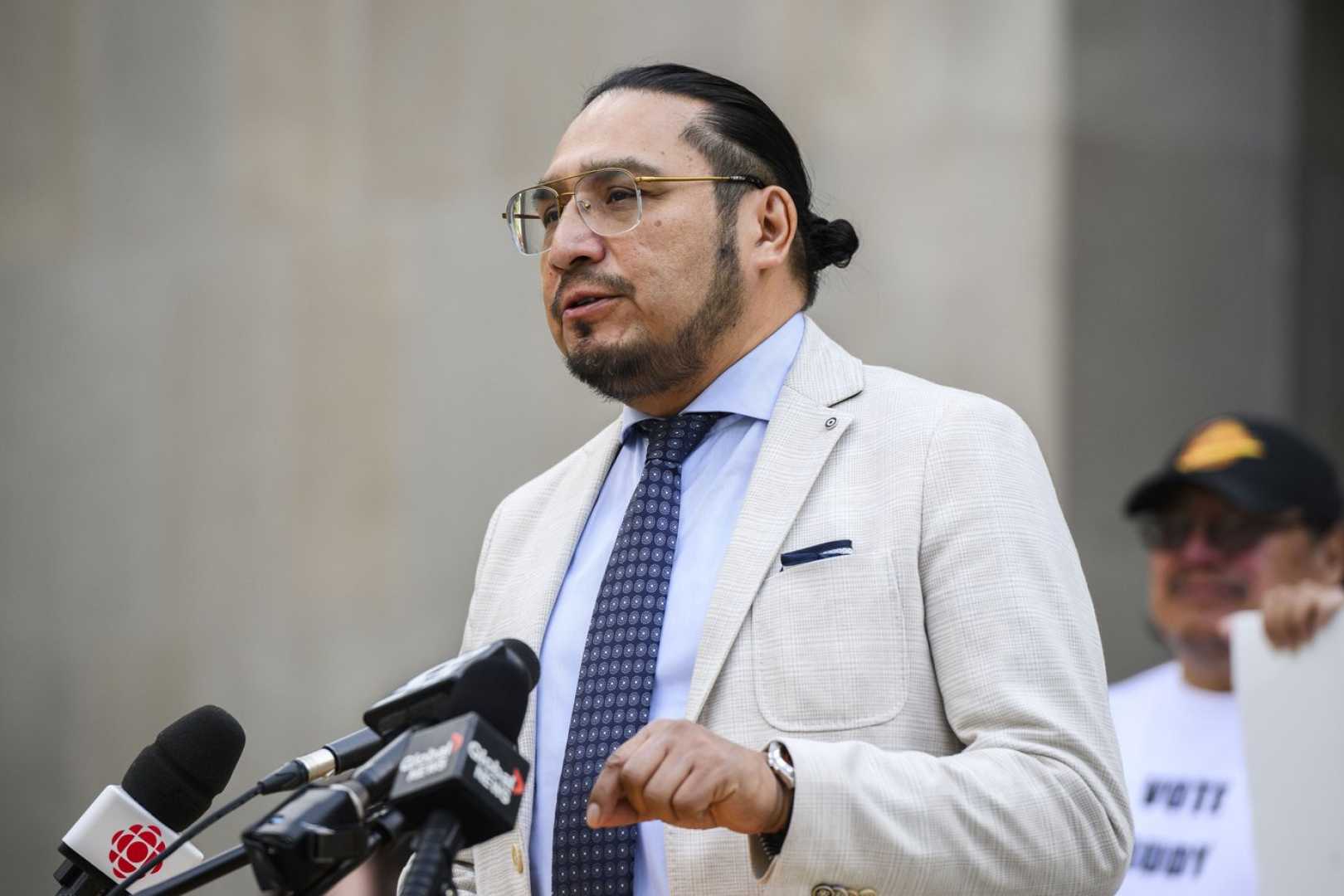News
Ontario MPP Advocates for Provincial Holiday on National Day for Truth and Reconciliation

Ontario’s only First Nation representative at Queen’s Park is preparing to propose legislation in his Indigenous language, urging the declaration of a paid provincial holiday. This proposal seeks to establish a provincial holiday to align with the National Day for Truth and Reconciliation, currently a federal statutory holiday but not recognized at the provincial level in Ontario.
Sol Mamakwa, the deputy leader of the New Democratic Party and representative of the Kiiwetinoong riding in northwestern Ontario, is advocating for Ontario to adopt a similar stance to the federal government. Mamakwa expressed hopes that the Progressive Conservative government, led by Premier Doug Ford, will support this initiative. In a recent interview, Mamakwa stated, “It’s always First Nations who take the day off and do their thing and go reconcile, but I think it’s important for other Ontarians to have that day off to acknowledge, to reflect, to mourn, to learn of the real history of residential school.”
The national holiday serves as a day to remember the mistreatment of Indigenous peoples, including First Nations, Inuit, and Métis, in the country’s numerous residential schools—institutions run by both the state and the church. Although it is a statutory holiday for federally regulated workers and employees in certain provinces such as British Columbia, it has yet to be recognized as such across all provinces.
The initiative for this statutory holiday evolved from Orange Shirt Day, launched in 2013 following Phyllis Webstad’s story. At six years old, Webstad had her orange shirt, a gift from her grandmother, confiscated upon entering a residential school in 1973.
Mamakwa, who personally experienced life in a residential school, plans to introduce a private member’s bill in the Ontario legislature in November to pursue the establishment of this provincial holiday. He believes “there’s no wrong in it, it’s the only right thing to do,” emphasizing the need for all Ontarians to have a day for education about residential schools and the broader themes of truth and reconciliation.
In response, Greg Rickford, Ontario’s Minister of Indigenous Affairs, expressed skepticism about whether designating the day as a holiday would effectively honor its intent. “We have not reviewed the proposed legislation so we don’t want to presuppose anything,” Rickford noted in a statement. He indicated some First Nations leaders feel that a statutory holiday may not be the appropriate approach, and there should instead be a tailored focus on educational efforts.
Rickford underscored the importance of conducting further consultations to ensure any actions taken achieve meaningful acknowledgment. “Further consultation with First Nations communities, survivors, and leaders is crucial to ensure that any paths forward align with priorities for meaningful recognition,” he added.
Approximately 150,000 First Nations, Inuit, and Métis children were forced into residential schools, with around 6,000 confirmed deaths, though experts suggest the true figure may be higher. The National Centre for Truth and Reconciliation has so far documented over 4,000 names of deceased Indigenous children.
Currently, many Ontario schools participate in the National Day for Truth and Reconciliation by asking students to wear orange shirts and learn about the residential school history. Education on Indigenous issues is incorporated throughout the academic year in schools.
Mamakwa intends to present his bill in Anishininiimowin, or Oji-Cree, marking only the second occasion this language has been spoken in the legislative context. His previous speech in the spring was the first instance of a non-English, non-French language being used in the Ontario legislature, following changes to allow Indigenous languages.
He believes declaring a statutory holiday would represent a tangible step toward reconciliation. “When we talk about this legislature, when we talk about this government, that would be reconciliation,” Mamakwa said. “That’s the path, that’s the route to reconciliation, and we’ve got to walk that path.”












